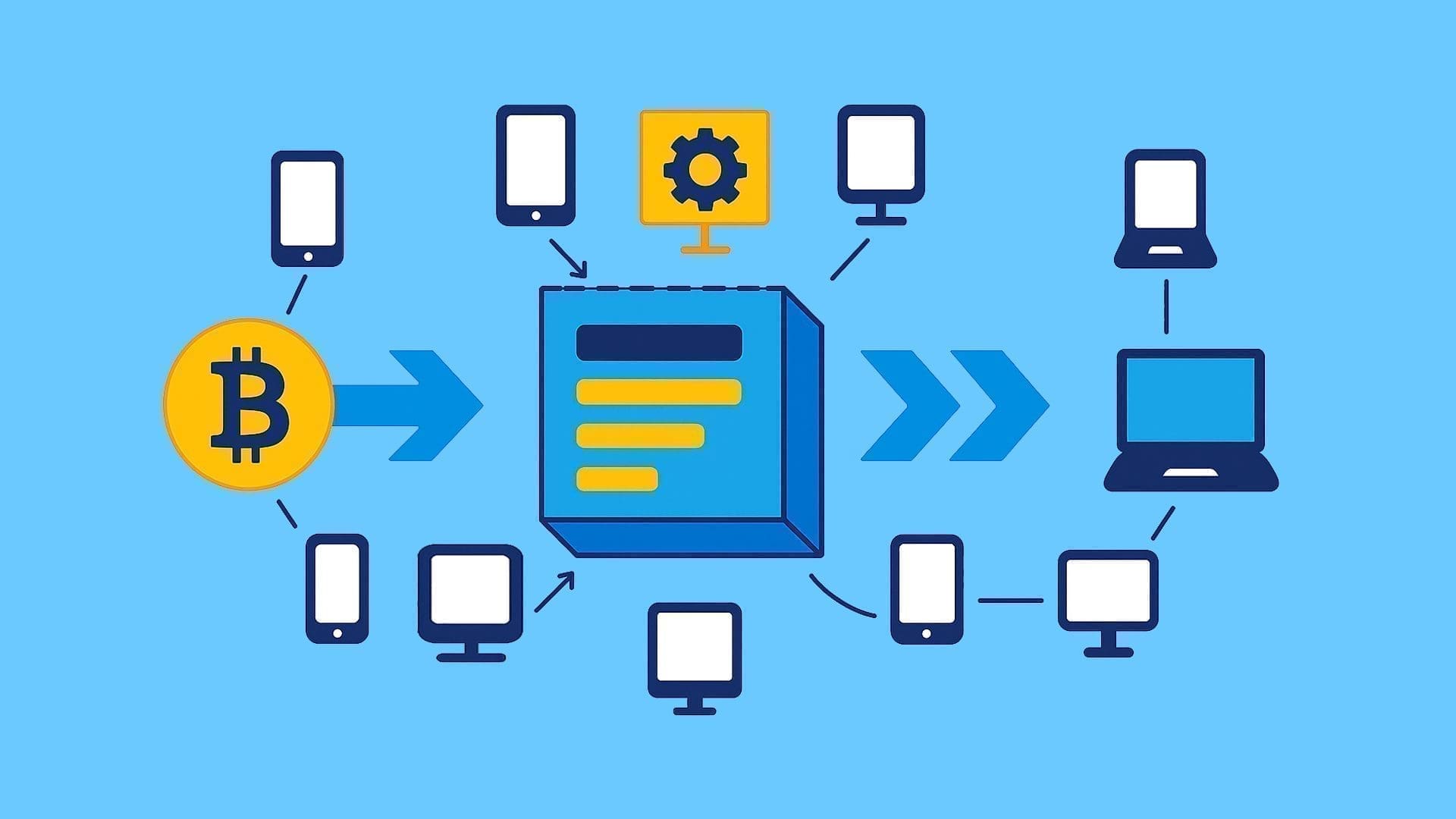To those interested in the field, it is crucial to understand the nuances of various processes in the rapidly evolving world of blockchain technology. One such critical process is Block Propagation. This term refers to the mechanism by which new blocks are distributed and shared across a blockchain network. Efficient block propagation is vital for maintaining the integrity, security, and speed of blockchain operations.
What is Block Propagation?
Block propagation, often referred to as block dissemination or block distribution, is the process through which new blocks are transmitted from one node to others in a blockchain network. When a miner or validator creates a new block, it needs to be shared with other participants to ensure that all nodes in the network have a consistent and up-to-date version of the blockchain. This process involves the propagation of the block’s data across the network, enabling all nodes to validate and add the new block to their local copies of the blockchain ledger.
Effective block propagation is essential for the smooth functioning of decentralized systems. It ensures that new transactions and blocks are quickly and efficiently communicated throughout the network, which in turn helps maintain the consensus and integrity of the blockchain. Without efficient block dissemination, the blockchain could suffer from delays, increased latency, and potential security vulnerabilities.
Why is Block Propagation Important in Blockchain?
Block propagation is a cornerstone of blockchain network performance and reliability, influencing several critical aspects of its operation. One of the primary reasons for its significance is network synchronization. Effective block propagation ensures that all nodes across the blockchain network remain aligned with the latest updates. This synchronization is crucial for maintaining a consistent ledger and providing a unified view of the blockchain for all participants.
In addition, block propagation directly impacts transaction confirmation times. When new blocks are disseminated quickly, transactions can be confirmed and integrated into the blockchain more efficiently. This rapid propagation enhances the overall user experience by reducing transaction times and accelerating confirmation processes.
Security and fraud prevention are also closely tied to efficient block dissemination. Rapid sharing of new blocks helps to mitigate risks such as double-spending and other fraudulent activities. By swiftly distributing blocks, the network can more effectively detect and reject invalid transactions, thereby safeguarding the blockchain’s integrity.
As blockchain networks expand, the efficiency of block propagation becomes increasingly critical for scalability. Efficient block dissemination helps manage the growing volume of transactions and blocks by minimizing delays, ensuring that the network can handle larger scales of operation without compromising performance.
How Block Propagation Works in Blockchain?
Understanding the mechanics of Block Propagation involves examining the various techniques and protocols used to distribute blocks throughout a blockchain network. The process begins with block creation, where a miner or validator successfully generates a new block containing a set of transactions, Wrapped Token Protocols, and other pertinent data. Initially, this block is available solely to the creator’s node.
The next step is broadcasting the block. The creator’s node sends the block to its immediate peers, which are the nodes directly connected to it. These peers then validate the block’s contents before propagating it further to their network connections. This forwarding process continues, with each node passing the block along to its peers until it reaches every node in the blockchain network.
As nodes receive the block, they perform validation checks based on the blockchain’s consensus rules. This involves verifying the block’s transactions, Wrapped Token Protocols, and other details. Once validated, the block is incorporated into the node’s local copy of the blockchain.
Following the addition of the block to the blockchain, the transactions contained within it are considered confirmed. The network then moves forward, with new blocks being propagated and appended to the chain, thereby maintaining the blockchain’s integrity and continuity.
Challenges in Block Propagation
Despite its crucial role, block propagation encounters several challenges that can affect the performance and efficiency of blockchain networks. One major issue is network latency, which can cause delays in the transmission of blocks. High latency results in longer times for blocks to reach all nodes, leading to slower transaction confirmations and an increased risk of forks within the blockchain.
Bandwidth constraints also pose a significant challenge. Limited bandwidth restricts the volume of data that can be transmitted across the network, impacting the speed and efficiency of block dissemination. This problem becomes particularly pronounced in large-scale networks with high transaction volumes, where the demand for data transfer can exceed available bandwidth.
Node diversity further complicates Block Propagation. Blockchain networks often consist of nodes with varying hardware and software capabilities, leading to inconsistent block propagation speeds. Some nodes may process and forward blocks more slowly, creating disparities in how quickly blocks are disseminated throughout the network.
Security risks are another concern. Block propagation is vulnerable to threats such as Denial-of-Service (DoS) attacks and eclipse attacks. These security breaches can disrupt the propagation process, causing delays and potentially leading to network failures.
As blockchain networks continue to grow, scalability issues become more prominent. The increasing volume of blocks and transactions can strain the block propagation process, making it challenging for blockchain developers to ensure efficient dissemination in large and expanding networks.
Advances in Block Propagation
To tackle the challenges of Block Propagation, researchers and developers have introduced several advancements aimed at improving efficiency. Optimized propagation protocols are at the forefront of these developments. Techniques such as compact block propagation have been designed to minimize the data that needs to be transmitted, thereby accelerating the block dissemination process. Additionally, blockchain networks frequently undergo upgrades that enhance block propagation mechanisms. Notable examples include Segregated Witness (SegWit) and Schnorr signatures, which help reduce latency and improve overall propagation efficiency.
Enhancements in peer-to-peer (P2P) network technologies have also contributed to more effective block propagation. Improved P2P protocols facilitate faster and more reliable communication between nodes, leading to quicker block dissemination. Data compression techniques further support this by shrinking the size of blocks and transactions, which reduces bandwidth usage and boosts network performance. Moreover, innovative solutions like sharding and Layer 2 technologies, including state channels and rollups, are being utilized to address scalability issues. Sharding partitions the blockchain into smaller segments, easing the data handling burden on nodes, while Layer 2 solutions enhance both scalability and block propagation efficiency.
Why Choose Nadcab Labs for Block Propagation Development in Blockchain?
When it comes to developing and optimizing block propagation mechanisms, Nadcab Labs stands out as a leading choice. With a strong focus on innovation and cutting-edge technology, Nadcab Labs offers expert solutions tailored to enhance block dissemination efficiency and address the challenges associated with blockchain networks. Their team of experienced developers and researchers is dedicated to advancing blockchain technology and providing reliable, scalable solutions for block propagation.
Choosing Nadcab Labs means partnering with a company that is committed to excellence and staying at the forefront of Blockchain Development. Whether you’re looking to improve block propagation in an existing network or develop new blockchain solutions, Nadcab Labs’s expertise and dedication make them an ideal partner for your blockchain development needs.






